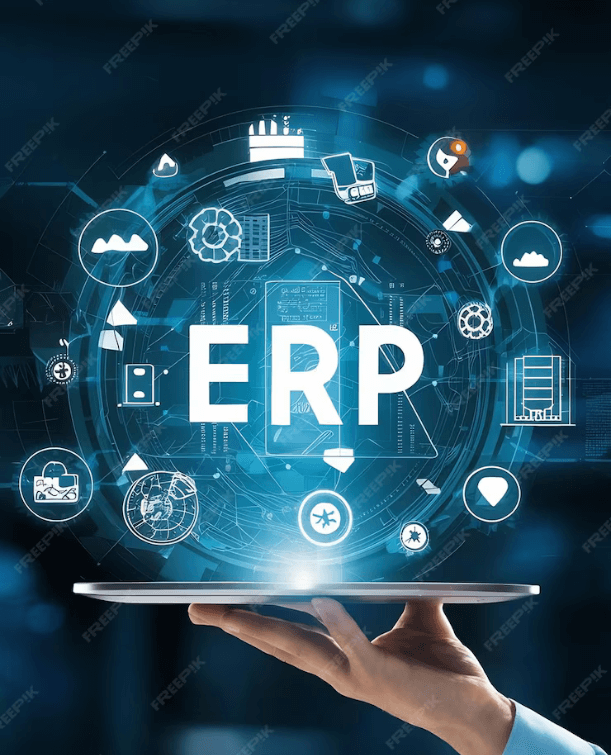Small and medium-sized businesses (SMBs) have long relied on Microsoft Dynamics GP (formerly Great Plains) to manage their financial and operational needs. However, as Microsoft plans to phase out Dynamics GP, SMBs must evaluate their options. In this blog, we’ll explore why migrating from Dynamics GP to Dynamics 365 Business Central makes sense, how it can benefit your business, and what steps to take to ensure a smooth transition.
Why Is Microsoft Phasing Out Dynamics GP?
Microsoft will discontinue the sale of new perpetual licenses for Dynamics GP in 2025 and subscription licenses in 2026. Full support for existing users will cease in January 2028. While you will continue to receive updates for tax and regulatory changes until then, Microsoft’s clear focus is on its cloud-based ERP systems, such as Dynamics 365 Business Central.
For small and medium-sized businesses, this shift means evaluating whether to stick with Dynamics GP in its final years or upgrade to a more modern, cloud-based ERP solution. Staying on Dynamics GP might provide short-term comfort, but migrating to Business Central offers long-term value and growth potential.
Implications of Staying on Dynamics GP
Many businesses may stay with Dynamics GP until the end-of-life date in 2028. However, as Microsoft’s focus shifts away from GP, innovation in the platform will decline. This could leave businesses relying on outdated technology, making competing or scaling operations difficult.
Moreover, there are ongoing costs associated with maintaining an on-premise solution like Dynamics GP:
- Licensing fees
- Infrastructure costs
- SQL Server licenses
- Database maintenance
- Annual maintenance costs (AMC)
- Upgrade costs
These expenses add up, especially when compared to the benefits of a cloud-based ERP solution like Business Central, which offers a monthly subscription model, reducing the total cost of ownership (TCO).
Roadmap

Why Migrate Dynamics GP to Dynamics 365 Business Central?
Dynamics 365 Business Central is Microsoft’s cloud-based ERP designed to meet the growing needs of SMBs. Unlike the aging Dynamics GP system, Business Central offers a modern, integrated platform that provides more advanced capabilities while eliminating the need for costly hardware or manual updates.
Key features include:
- Cloud-based ERP: Reduce infrastructure costs and enjoy remote access and scalability flexibility.
- Streamlined Workflows and Automation: Improve productivity by automating repetitive tasks, from financial management to inventory tracking.
- Advanced Reporting and Analytics: Leverage built-in reporting tools and Power BI integration for real-time insights into your business.
- Automatic Updates: Stay up to date with the latest features and security updates automatically, without the need for manual efforts.
- Custom Applications: Build tailored applications with Microsoft’s Power Platform to meet specific business needs.
- AI-Powered Forecasting: Leverage artificial intelligence to predict market trends, inventory needs, and customer demand.
- Seamless Integration: Enjoy seamless connectivity with Office 365, Power Apps, Power Automate, and over 2,000 third-party apps, driving better collaboration and efficiency.
Total Cost of Ownership (TCO) Comparison
The shift to a cloud-based ERP like Business Central can significantly reduce the total cost of ownership. Here’s how:
- Licensing Costs: Unlike Dynamics GP’s perpetual license, Business Central operates on a subscription-based model, reducing upfront capital expenditure.
- Infrastructure and Maintenance: With a cloud-based system, there’s no need for costly servers or on-premises maintenance.
- Automatic Updates: Say goodbye to the expensive, time-consuming upgrades required for Dynamics GP. Business Central is automatically updated with new features and security enhancements.
By transitioning to Business Central, SMBs can reduce their total ownership cost while gaining access to better technology and tools.
Staying on Dynamics GP – Is It Worth It?
Some businesses are hesitant to migrate from Dynamics GP, preferring the comfort of a familiar system. If you’re among those considering staying, there are options to ensure you make the most of your current investment. Upgrading to the latest version of Dynamics GP before support ends will provide access to recent features and security patches. However, this is only a temporary solution, as Microsoft will no longer release new versions or major feature updates after 2028.
For businesses that want to stay on GP but are intrigued by the cloud, there’s also the option to host Dynamics GP on Microsoft Azure. This hybrid approach offers cloud benefits—such as improved security and accessibility—without abandoning the on-premises solution entirely.
How to Migrate Dynamics GP to Dynamics 365 Business Central?
Migrating from Dynamics GP to Business Central is a strategic move that requires careful planning. Here are the key steps:
- Assess Your Business Needs: Analyze your current use of Dynamics GP and identify gaps or inefficiencies that Business Central can address.
- Engage a Microsoft Partner: Work with a certified Microsoft partner to plan your migration. They will help with data migration, customizations, and user training to ensure a smooth transition.
- Data Migration: Ensure critical business data is accurately transferred from GP to Business Central. A partner will assist in data mapping, cleansing, and migration.
- User Training: Provide comprehensive training to utilize Business Central fully.
- Post-Migration Support: After migration, you’ll need ongoing support to optimize the system and ensure it meets your evolving business needs.
Conclusion: Future-Proof Your Business with Dynamics 365 Business Central
The end of Dynamics GP is inevitable, but SMBs can seize this opportunity to future-proof their operations by migrating to Dynamics 365 Business Central. With its robust cloud-based capabilities, seamless integration, and reduced TCO, Business Central empowers businesses to drive growth, improve productivity, and stay competitive in an evolving market.
If you’re ready to start your migration journey, contact us to guide you through the process and help you unlock the full potential of Dynamics 365 Business Central.
